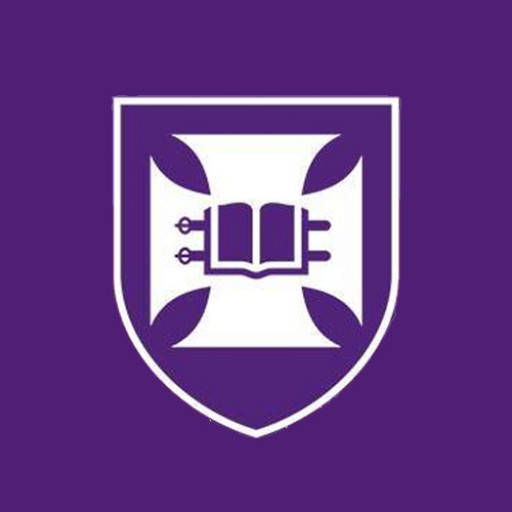The University of Queensland offers a comprehensive program in Psychological Practice with a specialized focus on Sport and Exercise Psychology. This postgraduate degree is designed for students who aspire to develop advanced skills and knowledge in the psychological aspects of athletic performance, physical activity, and exercise. The program combines rigorous academic coursework with practical training, enabling graduates to effectively apply psychological principles to enhance athlete well-being, optimize performance, and promote healthy activity behaviors across diverse populations.
Throughout the program, students engage with a broad curriculum that covers core areas such as assessment and intervention techniques, ethical and professional issues in psychology, and the science of human behavior related to sport and exercise. They learn to conduct psychological assessments, deliver evidence-based interventions, and work collaboratively with athletes, coaches, and health professionals. A significant emphasis is placed on practical experience, with opportunities for supervised field placements, case studies, and applied projects that prepare students for real-world professional practice.
The program also emphasizes contemporary issues such as mental health in sports, motivation, resilience, performance anxiety, and the psychological implications of injury and rehabilitation. Students gain insight into bio-psycho-social models of health, developing the skills necessary to promote mental wellness and peak performance in competitive and recreational settings.
Designed for individuals holding an undergraduate degree in psychology or a related field, the program meets the accreditation standards required for professional registration as a psychologist specializing in sport and exercise psychology. Graduates are equipped to work in a variety of settings including sports teams, sporting organizations, fitness centers, corporate health programs, and clinical contexts focusing on physical activity and mental health.
The University of Queensland's Sport and Exercise Psychology program emphasizes academic excellence, ethical practice, and professional development. The faculty comprises experienced researchers and practitioners dedicated to advancing the science of sport psychology and supporting students through innovative teaching methods and personalized supervision. Upon successful completion, graduates are prepared to contribute meaningfully to the field of sport and exercise psychology, fostering healthy, resilient, and high-performing individuals in various sporting and health-related environments.
The Master of Psychological Practice (Sport and Exercise Psychology) at The University of Queensland is a comprehensive program designed to prepare students for a professional career in sports and exercise psychology. This program combines theoretical knowledge with practical skills, enabling graduates to work effectively with athletes, teams, and individuals to enhance performance, motivation, and well-being. The curriculum covers a wide range of topics, including the psychological principles underlying athletic performance, mental health considerations in sports, and strategies for behavioral change and intervention. Students will explore areas such as stress management, goal setting, visualization techniques, resilience, and team dynamics, all within an evidence-based framework promoted by current research. The program emphasizes experiential learning through supervised placements, workshops, and real-world case studies, providing students with opportunities to apply their knowledge in diverse settings. Additionally, students will develop strong skills in psychological assessment, intervention planning, and ethical practice, ensuring they are well-prepared for registration and professional accreditation in the field. The program also offers optional specializations, allowing students to tailor their studies toward specific interests within sport and exercise psychology. By the end of the course, graduates will be equipped to work as registered psychologists with a focus on sports performance enhancement and mental health support for athletes and active populations. The University of Queensland's program maintains strong links with sporting organizations, providing students with valuable networking opportunities and industry insights. Graduates are prepared to contribute to the health and performance outcomes of athletes at all levels, from amateur to elite sports.
Program requirements for the University of Queensland's Bachelor of Psychological Practice (Sport and Exercise Psychology) include completing a set of compulsory courses that cover foundational psychology principles, research methods, and specific training in sport and exercise psychology. Students are expected to undertake undergraduate coursework that encompasses core psychology disciplines such as developmental, social, and biological psychology, along with specialized units focusing on sports psychology, mental health, and performance enhancement. Practical experience is a key component; thus, students must engage in supervised placements and internships to develop practical skills in assessing, diagnosing, and treating psychological issues within sporting contexts. The program also demands active participation in research projects, including thesis work, to foster analytical and evidence-based thinking.
Furthermore, students are required to attain a certain level of academic performance by maintaining a minimum GPA as specified by the university to remain eligible for advanced coursework and practicum placements. Some courses may have pre-requisites, including foundational psychology units, and students must complete these prerequisites with satisfactory grades prior to enrolling in advanced modules. Completion of a capstone project or specific research project is usually mandatory, demonstrating integration of theoretical knowledge with practical applications. Additionally, students are expected to adhere to professional and ethical standards outlined by the university and relevant accrediting bodies, such as the Australian Psychological Society and the Australian Health Practitioner Regulation Agency (AHPRA).
Participation in workshops, seminars, and additional training sessions in areas such as counselling techniques, ethical practice, and client communication is often required to enhance practical proficiency. As the program prepares students for registration and employment as psychology practitioners specializing in sport and exercise contexts, accreditation requirements mandate the successful completion of coursework aligned with the Psychology Board of Australia’s guidelines. Students must also satisfy any language proficiency requirements if applicable and demonstrate a commitment to ongoing professional development. Overall, the program emphasizes a rigorous combination of theoretical coursework, practical training, research, and professional ethics to equip graduates with the competencies necessary to practice as qualified Sport and Exercise Psychologists.
The financing of the Graduate Certificate in Psychological Practice (Sport and Exercise Psychology) at The University of Queensland primarily involves a combination of tuition fees paid by students, potential government funding options, and possible financial aid or scholarships available through the university. Domestic students may be eligible for funding support through various government programs, such as Austudy or Youth Allowance, depending on their individual circumstances. International students are required to pay the full international tuition fee set by the university, which varies annually and is available on the university's official fee schedule. The program's fee structure is designed to reflect the specialized nature of the graduate coursework, finalised at the start of each academic year and published on the university’s official website. The university offers a range of scholarships, some of which may be applicable to students enrolled in this program, providing financial assistance based on merit, need, or specific criteria such as Indigenous status or regional origin. Additionally, students often finance their studies through personal savings, loans, or employer sponsorships where applicable. The university provides financial counselling services to assist students in understanding their options and managing their educational expenses efficiently. It is also possible for students to work part-time while studying, and the university's location in Brisbane provides access to various part-time employment opportunities. International students should consider additional costs such as health insurance (Overseas Student Health Cover), accommodation, visas, and living expenses, which are significant factors in the overall cost of studying in Australia. Students are encouraged to consult the official UQ financial aid and scholarship webpage for the most current information and to explore all available options for funding their education. Overall, financing studies in this program typically involves a combination of personal funds, government aid (for eligible domestic students), scholarships, and possible loans, tailored to each student's circumstances.
The University of Queensland offers a specialized program in Psychological Practice with a focus on Sport and Exercise Psychology. This program is designed to equip students with the theoretical knowledge and practical skills necessary to work effectively as psychologists in sports and exercise contexts. The curriculum emphasizes an understanding of human behaviour, mental health, motivation, and performance enhancement techniques, tailored to athletes and active populations. Students engage in coursework that covers psychological assessment, intervention strategies, ethical considerations, and contemporary research findings in Sport and Exercise Psychology. The program also provides supervised practicum opportunities, allowing students to apply their learned skills in real-world settings under the guidance of experienced professionals. Graduates of this program are prepared to work in diverse environments, including sports teams, fitness organizations, rehabilitation centers, and private practice. The program aligns with professional standards and accreditation requirements set by relevant psychological associations, ensuring that graduates meet industry criteria for practice. Additionally, the program promotes research activities, encouraging students to contribute to the growing body of knowledge in Sport and Exercise Psychology through thesis projects and scholarly publications. The University of Queensland’s faculty brings extensive expertise and research excellence, creating a rich academic environment for aspiring psychologists. Students have access to state-of-the-art facilities, including testing labs and sports science resources, which enhance their learning experience. Upon completion, graduates are eligible to pursue registration as psychologists with a specialty in Sport and Exercise Psychology, further advancing their careers. This program is ideal for individuals passionate about improving athletic performance and well-being through psychological principles, and it offers a comprehensive foundation for those wishing to specialize in this dynamic field.






